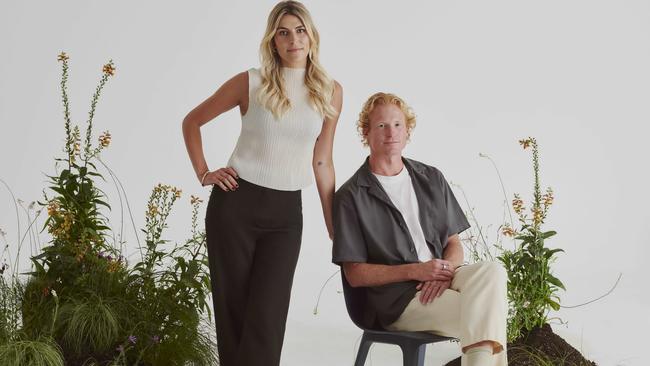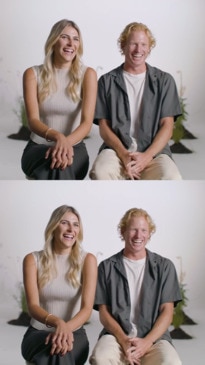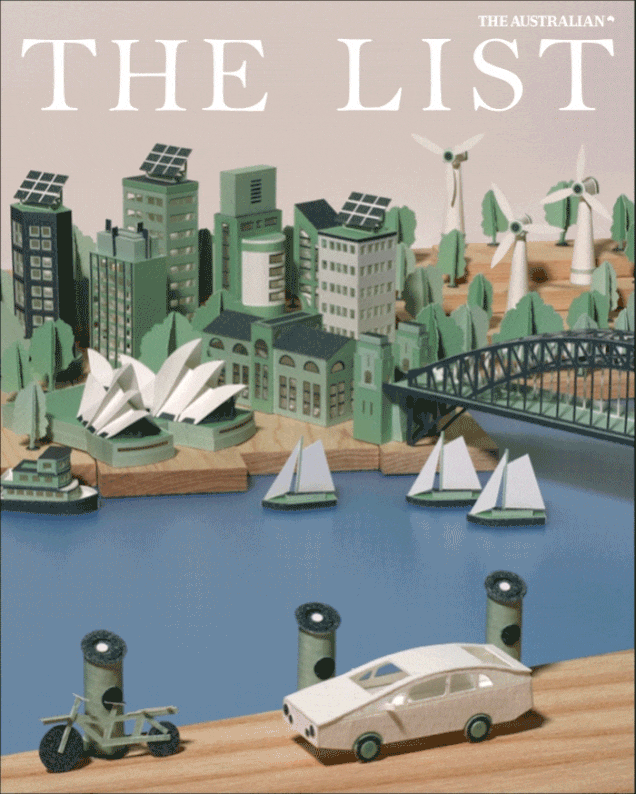Great Wrap founders Jordy and Julia Kay expand Melbourne eco start-up with new range
This couple turned an idea to reinvent cling wrap via the humble potato into an expanding business now in thousands of homes and some of the country’s biggest firms.

Meet the young Australian couple who are reinventing cling wrap by harnessing the power of wasted potatoes and turning starch into a compostable food wrap.
Jordy and Julia Kay’s Great Wrap has been named as one of the rising stars among eco-friendly businesses in The Australian’s The List: Green Power Players which spotlights 100 Australians whose great ideas and ways of conducting business are leading the way in our transition towards renewable energy and a greener economy.
Started just four years ago, Great Wrap is making ground across the nation, having now entered over 60,000 homes.
Meet the innovators who are leading the transition towards a greener economy in the new edition of The List: Green Power Players, available online and in The Australian print edition on Friday, February 24.
The business is also building up its reputation in a space largely dominated by US plastics giant Glad, known for its rubbish bags, cling wrap and sealable food covers.
A former architect from Perth, Mrs Kay, 30, had long seen the impacts of mass produced plastic in her work as had her husband Jordy, 32,who was an organic winemaker from Melbourne.

The idea for Great Wrap didn’t take long to conceive, with the pair registering the business’ name just three months after they met in a pub in Fitzroy.
Fast forward a little under four years and they have used over 62,000kg of potatoes which were bound for landfill and turned them into 4,984,192 metres of food wrap.
Today there are between 25 to 35 Great Wraps around the Kay family home, where prototypes and test materials have made their way out of the kitchen and into the lounge room, office space and bedroom.
The success of its retail product means the founders are now set to launch a commercial product next week.
The duo have secured 20 large-scale Australian businesses in the logistics, food and beverage and packaging space to trial their pallet wrap.
Mrs Kay said the business had slowly been working away at the product which is built with the same starch used in its kitchen wrap but is several times as strong.
“In principle, the wraps are the same but there’s a different layering process which allows the pallet wrap to be much stronger,” she said.
Over the past few weeks at the Great Wrap facility, about 14km northwest of the Melbourne CBD, a infrequently played game has become a daily ritual in the lead up to the launch of the new pallet wrap.
It’s a tug of war but not as you know it; teams comprise just single players and there’s no rope but rather a couple of metres of the new wrap.

“When we play, what usually ends up happening is one member goes gliding across the floor for about 10 seconds before it breaks,” Mrs Kay said.
When the Kays aren’t testing Great Wrap with a game of tug of war, they sometimes cover a bowl as tight as possible and throw a permanent marker at it. The way it bounces is a good measure of its plasticity.
Other times they wrap the top of an opened beer, flip it upside down and see how long the wrap can hold the liquid inside.
While Mrs Kay wouldn’t necessarily recommend the games they play in the office to test Great Wrap, she does believe anyone who tries the product would not be left disappointed.
“We’re not asking people to change their behaviour in the way they use the product, we’ve designed it as close to cling wrap as you can,” she said.
“For us it seems like a no-brainer to use a compostable product that can return carbon to soils. You kind of have nothing to lose.”





To join the conversation, please log in. Don't have an account? Register
Join the conversation, you are commenting as Logout